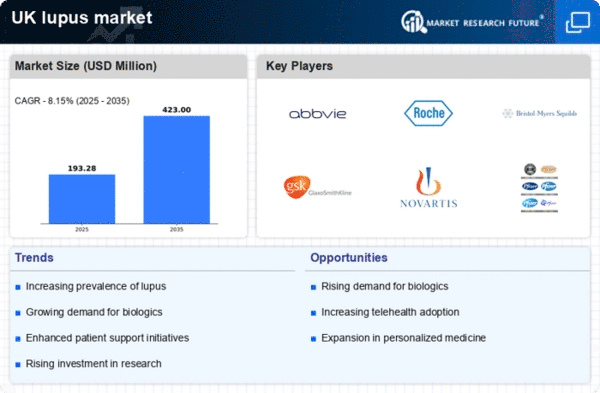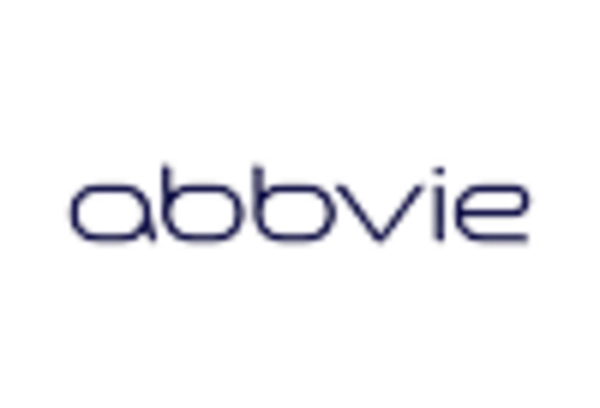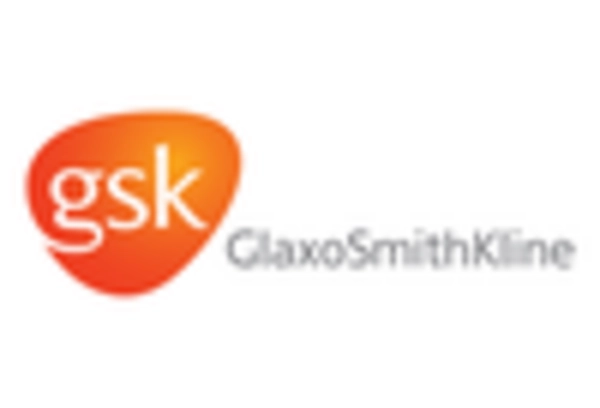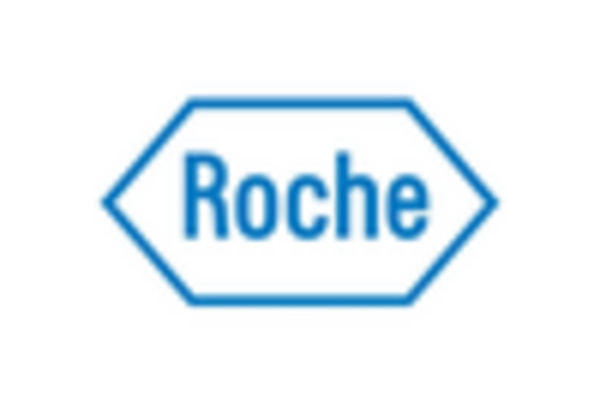Increasing Prevalence of Lupus
The rising incidence of lupus in the UK is a crucial driver for the lupus market. Recent estimates suggest that approximately 50,000 individuals are living with lupus in the UK, with a notable increase in diagnosed cases over the past decade. This growing patient population necessitates enhanced healthcare services and treatment options, thereby stimulating demand within the lupus market. Furthermore, the increasing prevalence is likely to lead to greater investment in research and development, as pharmaceutical companies seek to address the unmet needs of patients. As awareness of lupus continues to expand, healthcare providers are more inclined to recognize and diagnose the condition, further contributing to the market's growth.
Collaboration Between Stakeholders
Collaboration among various stakeholders, including healthcare providers, pharmaceutical companies, and patient advocacy groups, is a vital driver of the lupus market. Such partnerships facilitate the sharing of knowledge and resources, which can lead to improved treatment options and patient care. For instance, joint initiatives aimed at raising awareness and funding for lupus research are becoming more common. These collaborations may also enhance clinical trial recruitment, ensuring that new therapies reach the market more efficiently. As stakeholders work together to address the challenges faced by lupus patients, the overall landscape of the lupus market is likely to evolve positively.
Government Initiatives and Funding
Government initiatives aimed at improving healthcare access and funding for lupus research play a significant role in shaping the lupus market. The UK government has allocated substantial resources to support research into autoimmune diseases, including lupus. For instance, funding for clinical trials and innovative treatment options has increased, which may enhance the development of new therapies. Additionally, public health campaigns designed to raise awareness about lupus are likely to encourage early diagnosis and treatment, ultimately benefiting patients. Such initiatives not only improve patient outcomes but also create a more robust market environment for pharmaceutical companies and healthcare providers involved in the lupus market.
Rising Demand for Personalized Medicine
The trend towards personalized medicine is becoming increasingly prominent within the lupus market. Patients are seeking tailored treatment options that consider their unique genetic and environmental factors. This shift is prompting pharmaceutical companies to invest in research that focuses on developing targeted therapies for lupus. The market for personalized medicine is projected to grow significantly, with estimates suggesting it could reach £2 billion by 2027 in the UK. As healthcare providers adopt more individualized approaches to treatment, the lupus market is likely to experience a surge in demand for innovative therapies that cater to specific patient needs.
Technological Advancements in Diagnostics
Technological advancements in diagnostic tools are transforming the lupus market by enabling earlier and more accurate detection of the disease. Innovations such as advanced imaging techniques and biomarker identification are enhancing the ability of healthcare professionals to diagnose lupus effectively. This shift towards precision medicine is likely to improve patient management and treatment outcomes. As diagnostic technologies evolve, they may also lead to increased patient engagement and adherence to treatment plans. Consequently, the demand for these advanced diagnostic solutions is expected to rise, further propelling the growth of the lupus market in the UK.
















